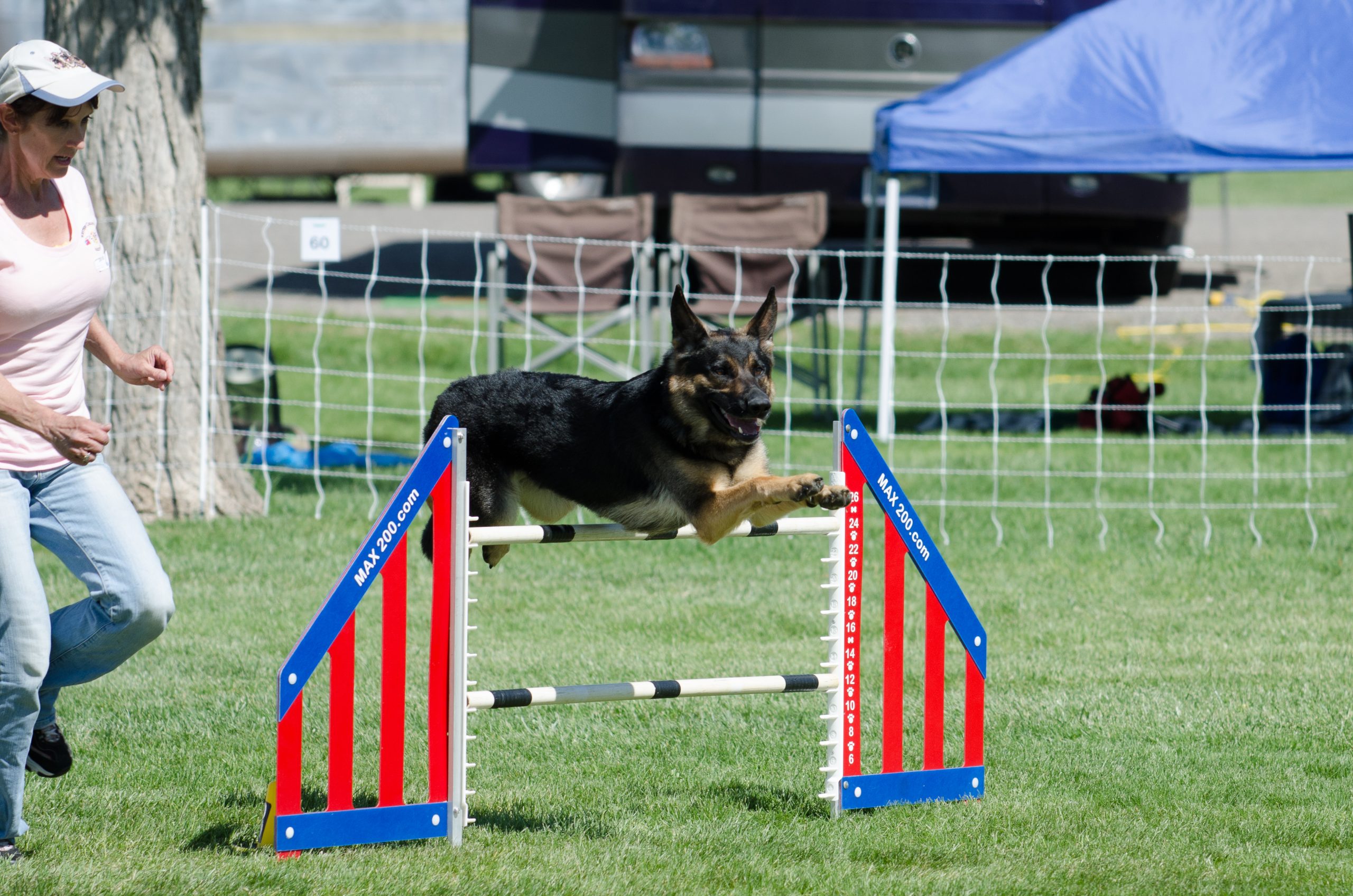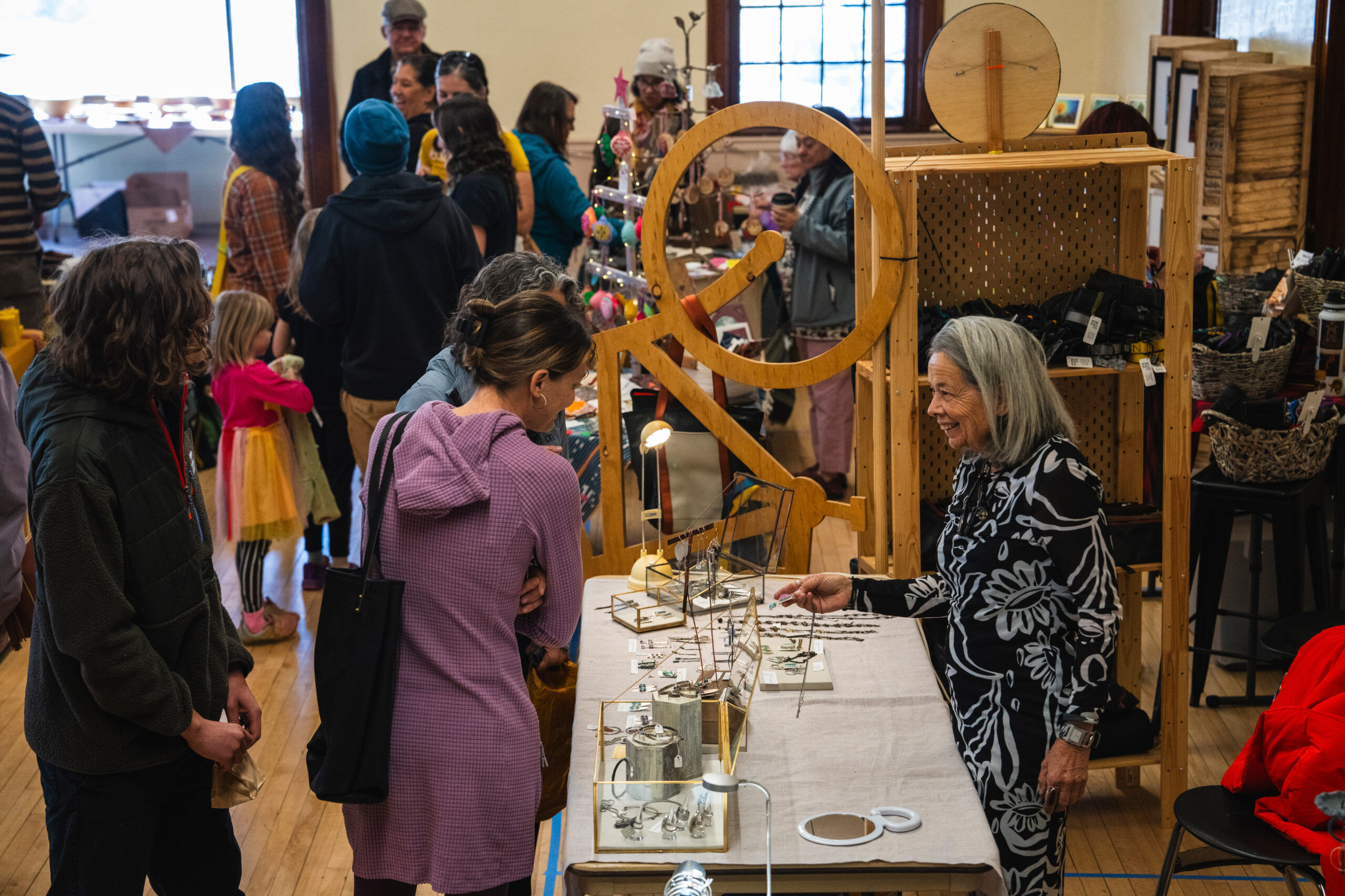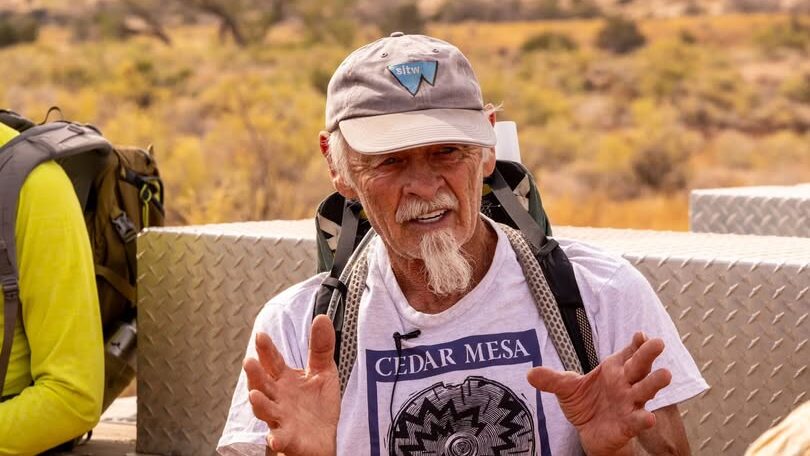Some information may be outdated.
Approximately 50 dogs from around Utah and Colorado are coming to Moab to demonstrate their skill and intelligence at the Dogs on Course in North America (DOCNA) dog agility competition at the Old Spanish Trail Arena.
Under the guidance of their owners, individual dogs will be timed as they run through various obstacle courses of which the canines are seeing for the first time. The dogs follow cues from their owner-handlers, who spend about five minutes walking and memorizing the course before the start of the event.
Bill Lukes’ 6-year-old Border collie, Jackson, ran his first Agility event in Moab four years ago. The Carbondale, Colorado, man said a lot of people from Salt Lake City and western Colorado attend the competition, which makes Moab a good central location to hold what many enthusiasts refer to as simply “dog agility.”
“Jackson only needs one more perfect run to get the Merit of Excellence (MEX) award,” Lukes said. “We’re hoping to get that in Moab, which would be really nice because that’s where we started four years ago.”
The “Lifetime Achievement Award” is designated after a dog has accomplished at least 55 perfect runs in various events, Lukes said.
From Friday evening through Sunday afternoon, the dog-human teams will run a variety of courses while a judge keeps track of time and any mistakes, such as jumping off of something not allowed. Dogs compete in various categories determined by shoulder height and level of experience.
The pets will perform jumps, and weave in and out of specific areas.
Those are not natural movements for a dog, according to Nancy Schmidt, who will bring her 9-year-old Australian Shepherd named Koda to compete. Agility dogs may also may run through tunnels, walk up and down planks and jump through tires. The courses vary every time.
The agility competition is sponsored by Zippity Do Dog, a Grand Junction, Colorado-based club run by Cathy and Anthony Stampe, who plan to bring their Jack Russell dogs to the competition.
Agility dogs typically train with their owners for an hour a week, Cathy Stampe said. Dogs learn to follow their handlers’ directions, which may be verbal commands or hand movements.
Some courses, called “gambles,” require the pooches to pick up on their owners’ signals from further away. Normally, the handler runs alongside his or her dog. Another course on Saturday is called “North American Challenge” – dogs that complete this course in the allotted time will qualify for the national competition.
“It looks simple but it does take quite a bit of training,” said Schmidt, whose Australian Shepherd won the MEX award last year. She creates a course at her Grand Junction home where the Zippity Do Dog club practices weekly, she said.
“Agility creates a real bond between the human and their dog,” Stampe said. “By working side by side the dog learns to read your movements. That’s why agility dogs have to be trained by (their) owner.”
“The dogs love it. They absolutely love it. It’s a game. It’s every dog’s dream to get to play with its owner.”
Lukes and his two Border collies attend six to eight competitions a year. He trains his younger dog Kate for short periods three to four times a week; Jackson, who already knows the commands, works on following directions given from a distance, which is more challenging for the dog.
“Some dogs do agility because it’s fun to do with their owners,” Lukes said. “Other dogs, particularly working dogs like Border collies, regard it as the whole point of life. They get so excited they can hardly control themselves. They love it.”
Spectators are welcome, but do not bring your dogs to watch. Other dogs distract those who are competing, participants said.
Canines converge in Moab for agility course
What: Dogs on Course in North America (DOCNA) dog agility competition
When: Friday, Feb. 27 at 6 p.m.; Saturday and Sunday, Feb. 28, March 1, 8 a.m. – 4 p.m.
Where: Old Spanish Trail Arena, 3641 S. U.S. Highway 191
Information: 970-261-2148; dogsoncourseinnorthamerica.com
Cost: Free. Spectators are asked not to bring their dogs because they are too distracting for the performing dogs.
Appreciate the coverage? Help keep local news alive.
Chip in to support the Moab Sun News.





